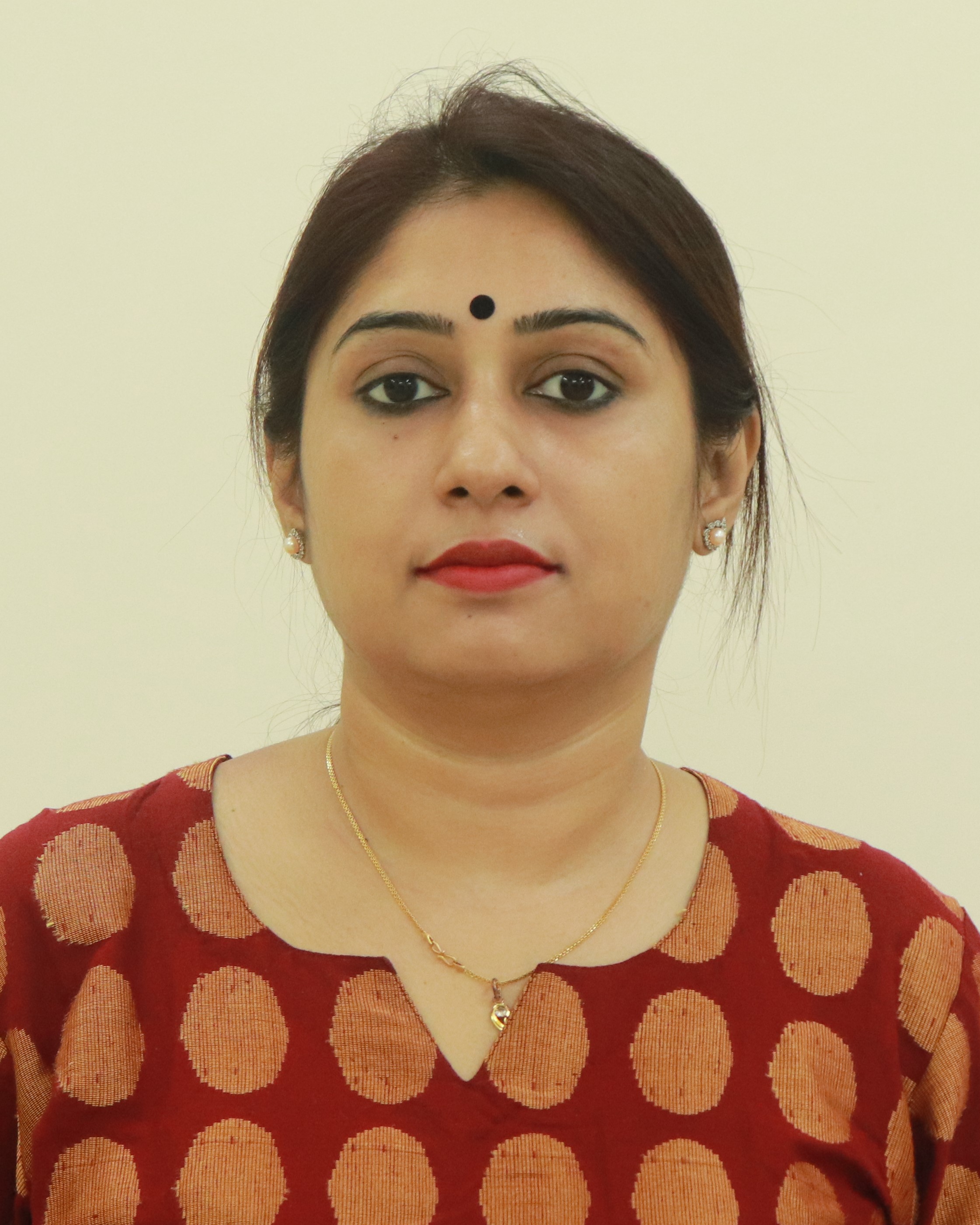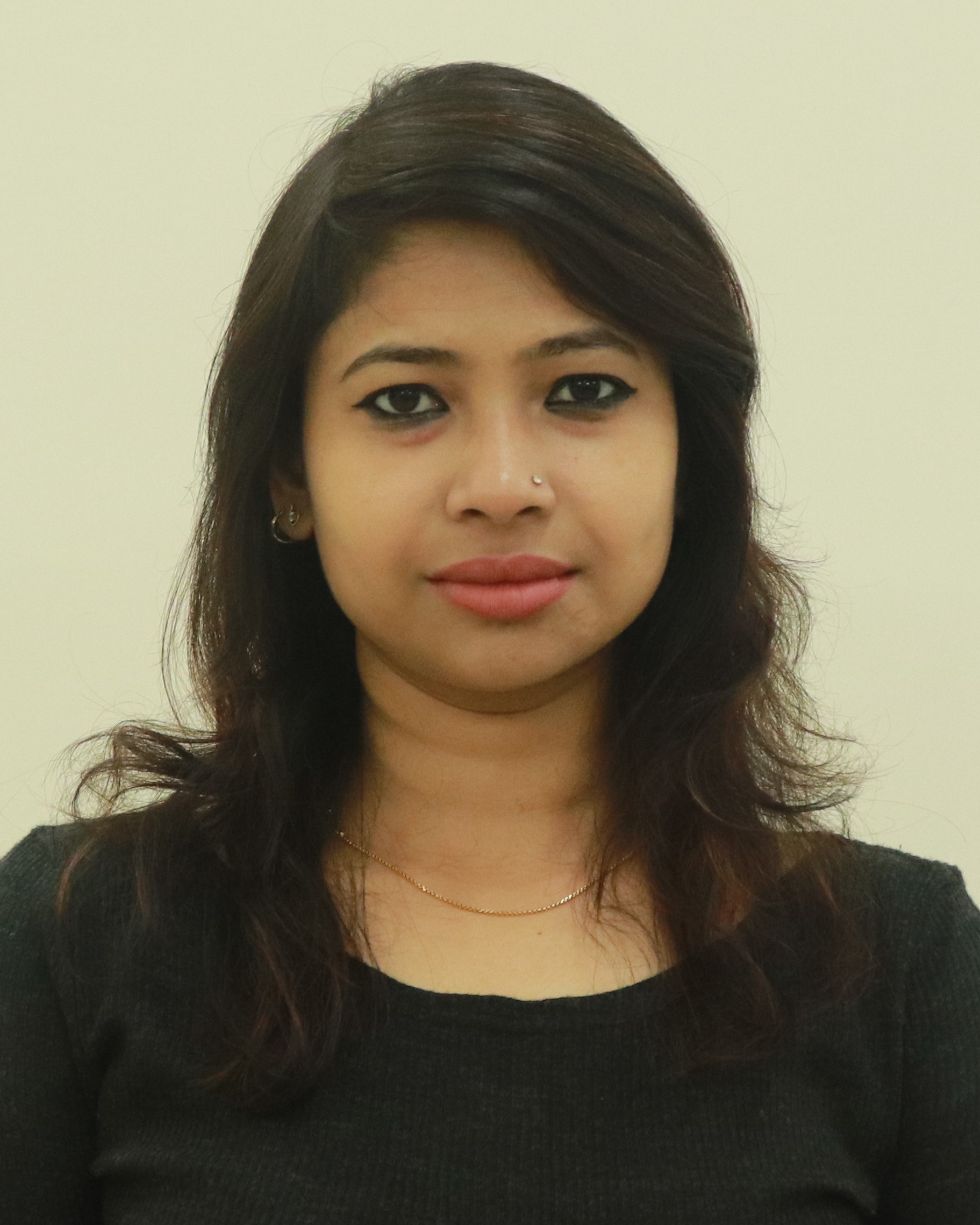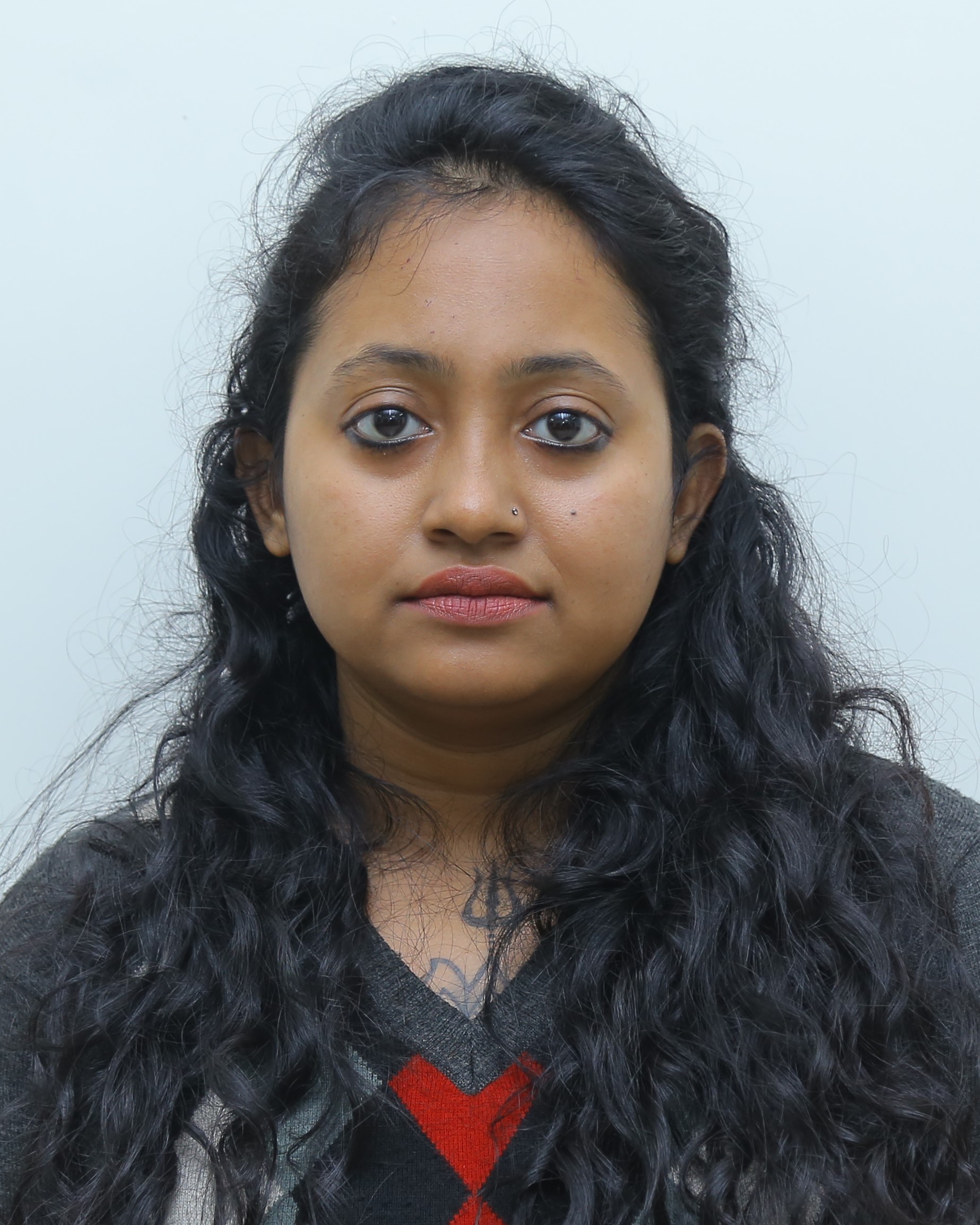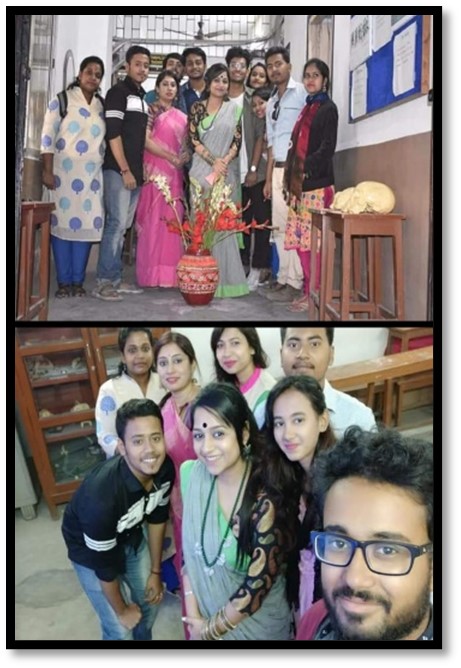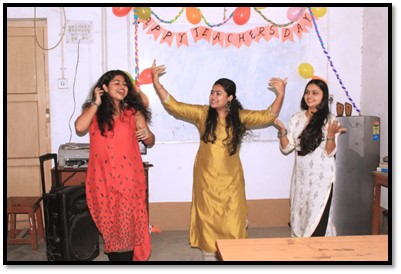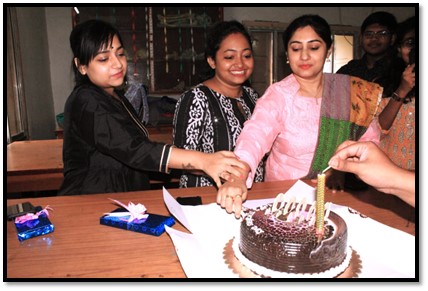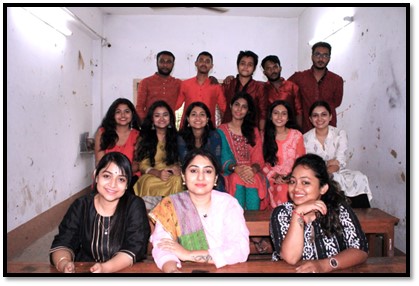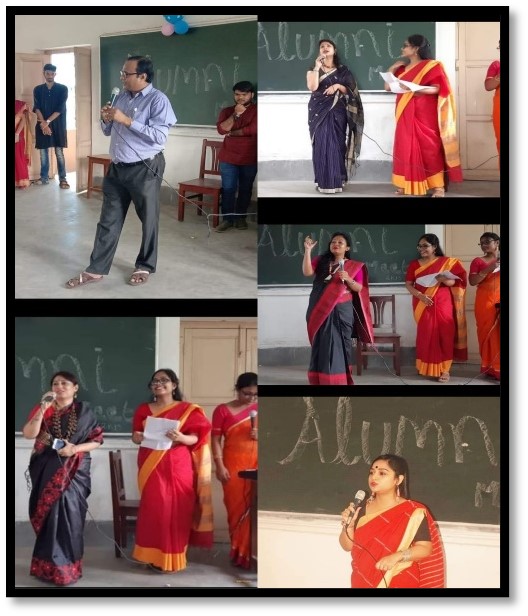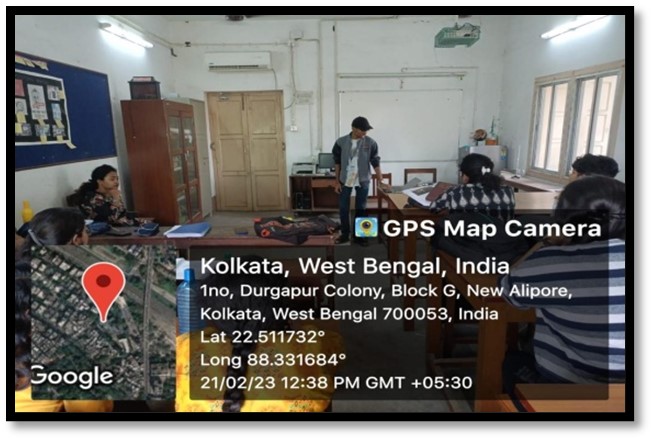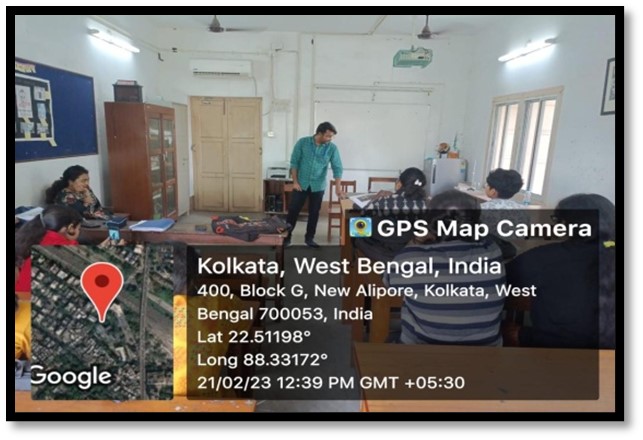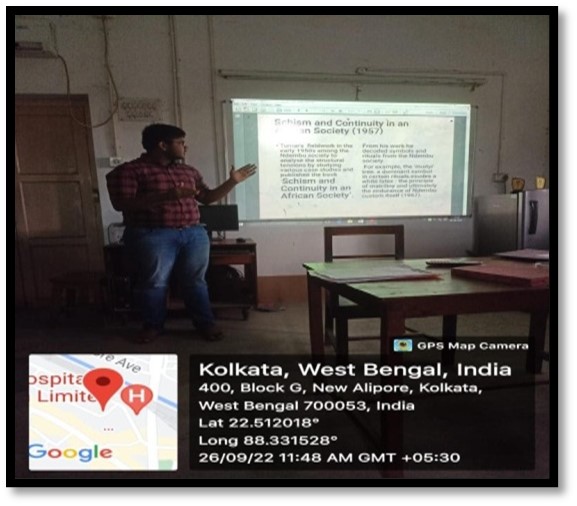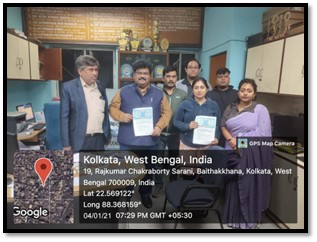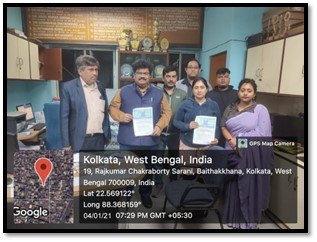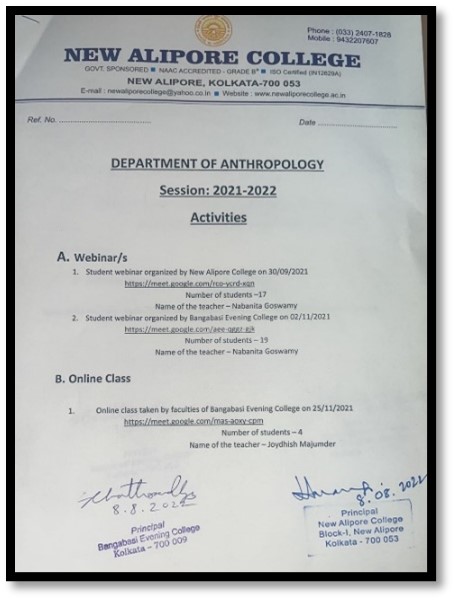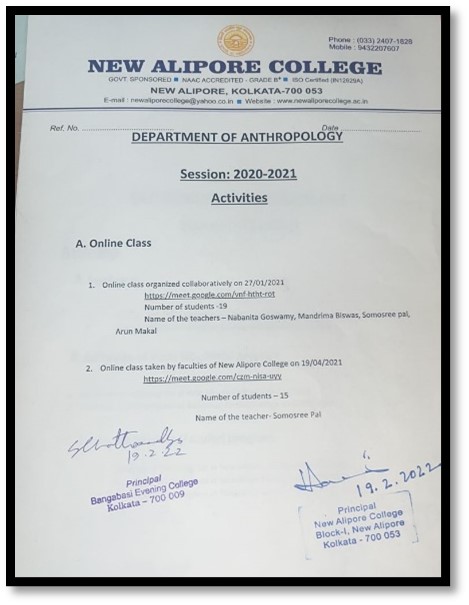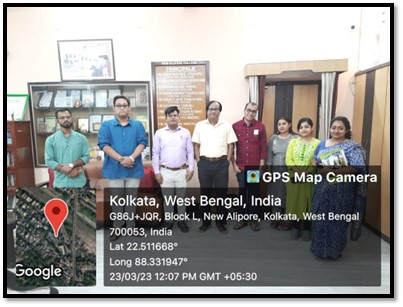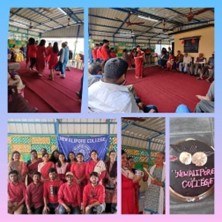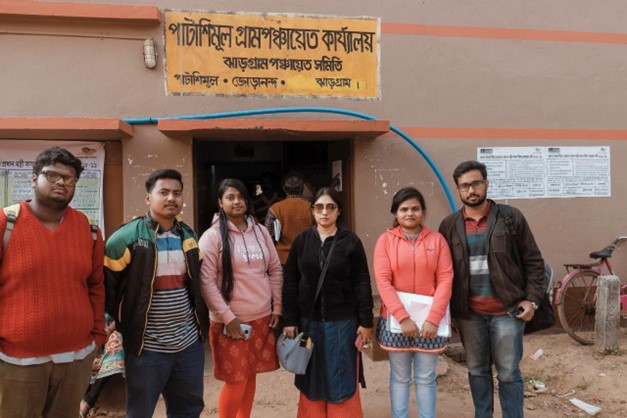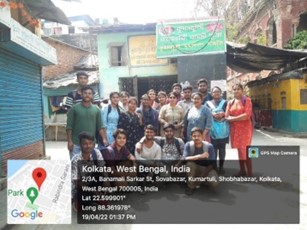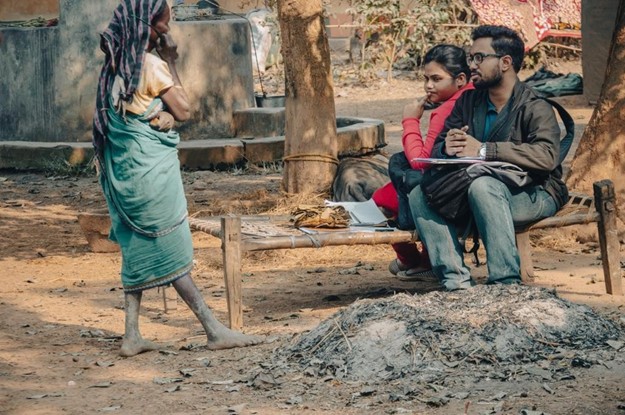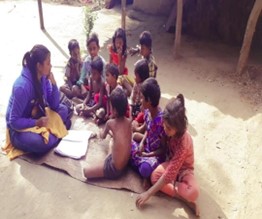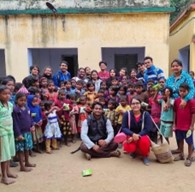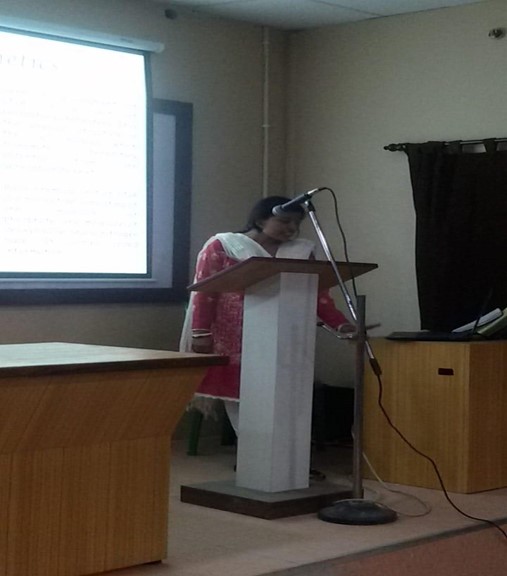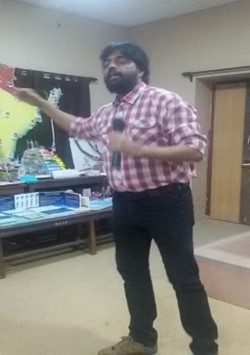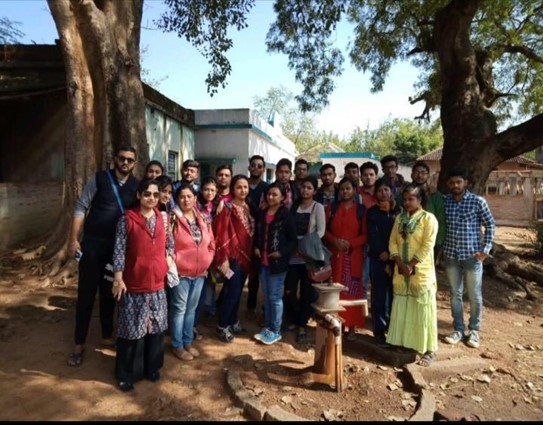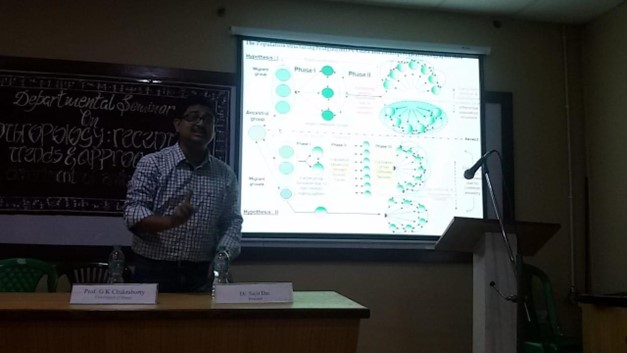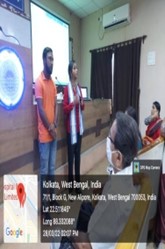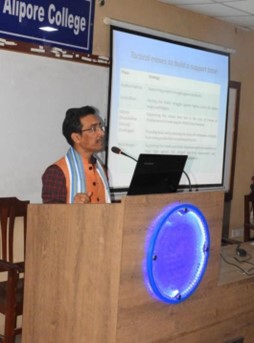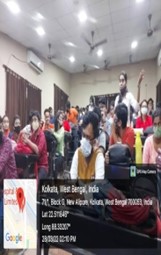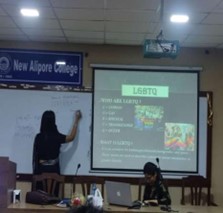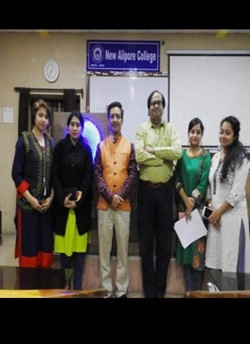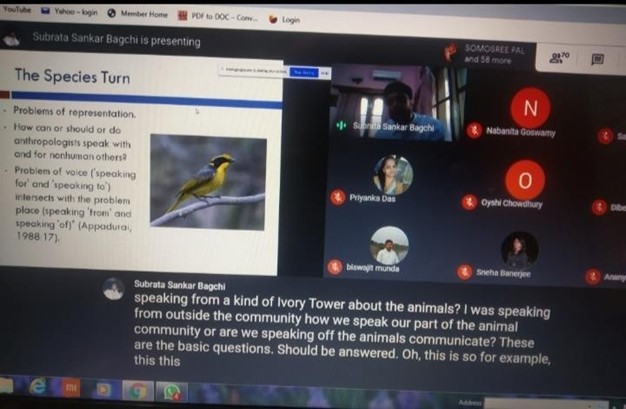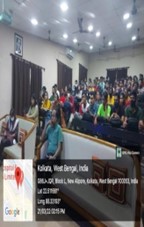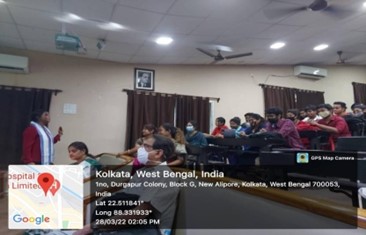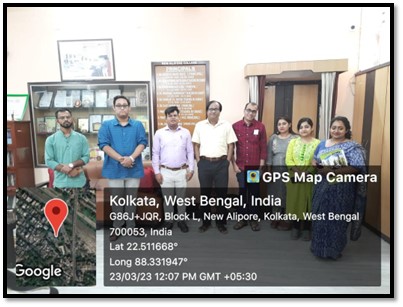Department of Anthropology
B.S.c(Anthropology)
Our department of Anthropology in this college, is, at its very young age. Currently, our departmental strength includes four faculty members namely Nabanita Goswamy, Mandrima Biswas, Monimekhala Dasgupta, & Somosree Pal. We have twenty 6th Semester students, thirty-three 4th Semester students, twenty-nine 2nd Semester students, and forty-three 1st Semester students & one laboratory assistant namely Ms. Gopa Dey Sarkar. Our journey started in the year 2008. It commenced with thirteen students & three faculty members. We accomplished great results, successful fieldwork, & more numbers of students in the following years. Our department was gradually enriched with efficient laboratory equipment, books & other required educational essentials, under the guidance & sincere cooperation of our Principal Sir & senior Professors of our college.
Today, we have two effective Laboratories with adequate instruments essentials, field kits, PowerPoint presentation capability, and required books in a departmental library. We hope to achieve more success & glory in the upcoming years, with the cooperation of our students & guidance of our eminent teachers & seniors.
In the Department of Anthropology, both Honours and General courses are offered to the students. At present, there are two categories of students in the department: CBCS and NEP System for both Honours and General curriculum. Department regularly conduct class tests and follow examination and evaluation system as framed by University of Calcutta.
Nabanita Goswamy and Arnab Das. Abrief address to the dimensions of sexuality ans Health of the sex workers at the margin of Kolkata Metropolis. Journal of the Department of Anthropology. University of Calcutta. Vol:12&13.2010-2011
Tanusree Shaw, Dr.Sutapa Mukhyopadhyay, Arnab Das, Soumi Dey, Nabanita Goswamy and Subrata Sankar Bagchi. Facing excusion at aging: An Ethnographic Profile of the Elderly People in an old home in Kolkata Metropolis.Journal of the Department of Anthropology. University of Calcutta. Vol:12&13.2010-2011.
Nabanita Goswamy, Arnab Das, Gopal Krishna Chakraborty.Age at Margin:Astudyof the Elderly people of Kolkata. The Asiatic Society.2011
Roy, A.G., Maity, M., Dasgupta, M., Bandyopadhyay, A.R. 2016. Childhood Obesity: A Study among Two Socio-Economic Groups of Kolkata, West Bengal. Journal of Social Science and Humanities Research. Vol-1, Issue 11. ISSN: 2456-2971.
Sayak Ganguli, Somosree Pal, Kaustav Das, Rajat Banerjee, Subrata Sankar Bagchi. “Gut microbial data set of a foraging tribe from rural West Bengal- insights into unadulterated and transitional microbial abundance”. Data in brief, Elsevier,2019.
Kaustav Das, Subrata Sankar Bagchi, Somosree Pal, Sayak Ganguli, Koel Mukherjee. “Use of neck circumference as a predictor to assess undernutrition : a study among the adult Sabar males of West Bengal, India”.Human Biology, 2019.
Kaustav Das, Koel Mukherjee, Mahua Chanak, Somosree Pal, Sayak Ganguli, Subrata Sankar Bagchi, Kaushik Bose. “Co-existence of high levels of Undernutrition and Hypertension among Sabar males of Purulia, West Bengal, India : A Paradox”. International Journal of Advancement in Life Sciences Research, 2019.
Kaustav Das, Koel Mukherjee, Sayak Ganguli, Somosree Pal, Subrata Sankar Bagchi. “Age related variations in Anthropometry, Body composition and Nutritional status among the Adult Kheria Sabar males of Purulia, West Bengal, India”. Collegium Anthropologicum, 2020.
Kaustav Das, Koel Mukherjee, Mahua Chanak, Somosree Pal, Sayak Ganguli, Subrata Sankar Bagchi, Kaushik Bose. “Age Trends in Under-Nutrition among Sabar Males of Purulia, West Bengal, India”. Journal of Human Ecology, 2020.
Kaustav Das, Koel Mukherjee, Sayak Ganguli, Somosree Pal, Subrata Sankar Bagchi. “The association between somatotype and nutritional status: a cross-sectional study among the adult Sabar males of Purulia, West Bengal, India”. International Journal of Anthropology and Ethnology, 2021.
Subhoshmita Mondal, Sohini Gupta, Meesha Singh, Somosree Pal, Kaustav Das, Mahashweta Mitra Ghosh, Subrata Bagchi, Sayak Ganguli. 2021. A Pipeline for Assessment of Pathogenic Load in the Environment using Microbiome Analysis. In M.Nath, D.Bhatt, P.Bhargava, D.K.Choudhary (Ed.).
Microbial Metatranscriptomics Belowground (pp. 493-510). Springer Verlag, Singapore. ISBN : 978-981-15-9757-2
Biswas, A., Biswas, R., Biswas,M., Roy, C. 2020. Founder father of Indian Prehistory: Robert Bruce Foote and his contributions to Indian Prehistory Journal. Vol. 2No.1 (2022) ISSN:2583-0570.
Roy, AG., Goswamy, N., Biswas, M., Dasgupta, M., Pal, S. 2022. Study on the diet and health status of the working population of the Birhor, PVTG of Purulia. Cell & Cellular Life Sciences Journal. Vol 7, Issue 2. ISSN: 2578-4811
Biswas, A., Roy, C., Biswas, M. 2022. Preliminary Geo-Archaeological Investigation on Subarnarekha Valley, Jhargram District, West Bengal Vol. 10: 20-37.
Dasgupta, M., Goswamy, N. 2023. Nutritional Status of Primary School Going Children of Charkhole Village, Kalimgpong, West Bengal. Anthropology and Ethnology Open Access Journal. Vol 6, Issue 2. ISSN: 2639-2119.
Course-1: Museum Study
The outcome of learning the course:
· A type of applied anthropology known as museum anthropology uses museums as a platform to make anthropological insights and information available and pertinent to the general population. As institutions of public culture, museums provide a platform for examining current societal issues and concerns.
· For the benefit of the general public, museums, and galleries were developed to showcase collections of artistic and scientific accomplishments. Through the interpretation of items, their goal has always been to inspire and educate through example.
Course-2: Temple Study
The outcome of learning the course:
· Hindus view temples as a symbol of tranquility and faith.
· To indicate the route that man must walk in order to progress spiritually and achieve Self-realization.
· To show the architecture (Structure, Style, Symbol) & their motif towards the culture
· To represent the social, political & economic views of that era.
Course-3: Advanced Indian Pre-history
The outcome of learning the course:
· Reconstruction of cultural history
· Recreation of prehistoric lifestyles
· Investigation of cultural processes
· Development of reliable chronologies
· Beginning & primary phases of evolution (Three-age-paradigm)
· Methods of studying stone tools.
Course-4: Advanced Indian Proto-history
The outcome of learning the course:
· A field of study that focuses on the time between prehistory and the earliest historical accounts.
· The time in a culture just before its written history starts.
· To study the three categories on the basis of metallurgical development: Chalcolithic phase →Bronze age→ Iron age
Course-5: Advance Human Genetics
The outcome of learning the course:
· The scientific field of genetics focuses on hereditary variation.
· We can learn more about the genetic causes of human diseases and how humans are changing today by learning how humans have evolved in the past.
· Studies into the formation and generational transmission of human attributes.
Course-6: Advance Forensic Anthropology
The outcome of learning the course:
· Determine the ancestry, sex, age, and stature of the subject. Discovering and techniques for recovering skeletonized Human Remains.
· Attempt to ascertain the type and causative agent if there is evidence of severe injury to the human bone
· To study the Dermatoglyphics (formation of fingerprint ridges, pattern types & pattern area)
· Representing the identification of a living person: Somatometry, Somatoscopy
Course-7: Social Movement of India
The outcome of learning the course:
· Studying social movements helps the students to analyze the activists who have sought social change.
· To help the students to develop critical thinking skills about the process of social change.
· Helps in further critical thinking of research-oriented studies.
Justification of the assessment:
· In this specific course, we've moved from talking about basic ideas like culture, society, community, associations, institutions, family, language, norms & values, social structure & organization, etc. to more nuanced and sophisticated ideas like class and caste.
· The fundamental topics of study in the discipline of Anthropology are anthropological notions. These include things like genetics, race & ethnicity, and size; food & health are essential considerations when anthropology studies the physical elements of human development.
· To understand the hominization (bio-cultural process), the journey from the Prehistory to Protohistory & history.
· The four-field approach also pushes researchers to take a comprehensive, almost omnipotent look at an artifact, ecofact, data, etc.
Through an interdisciplinary approach, we get to research ethnography and ethno-archaeological perspectives in the context of India.
The department has a large well equipped laboratory and a classroom with ICT facilities for the students. Besides, the department has separate computer with internet facility to carry out research projects of both students and teachers. There is a seminar library for students in the department and the students also access digitised college library with a proper reading room . Students are also provided with access to all online journals which keeps them updated with the world views.


